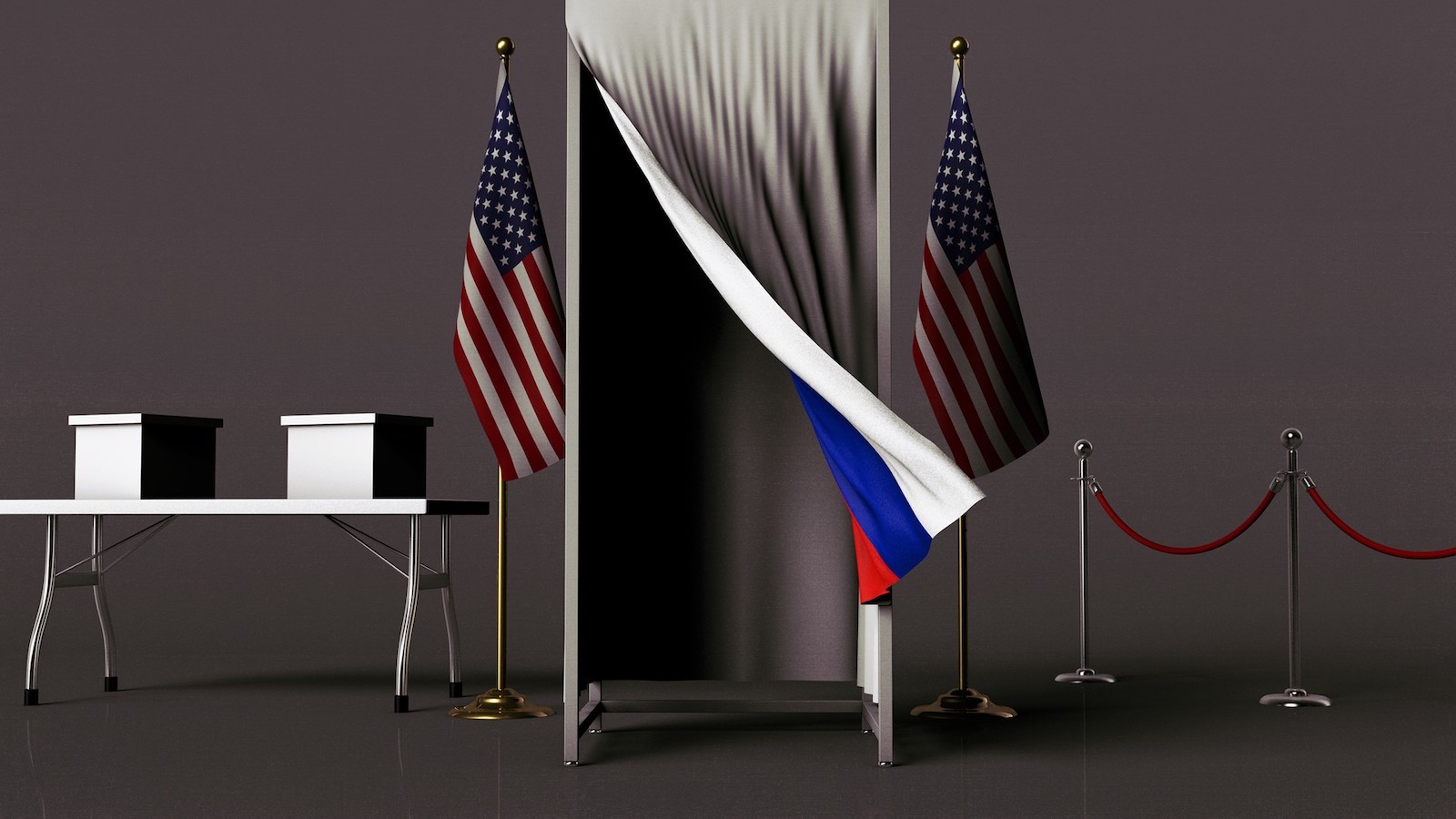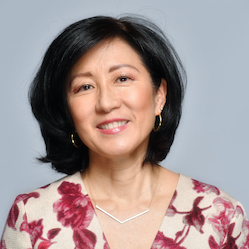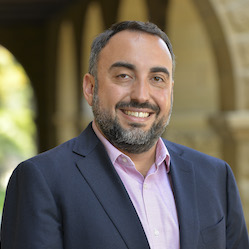Will Foreign Powers Prevail in the U.S. 2020 Elections? Safeguarding the vote from foreign influence

Will Foreign Powers Prevail in the U.S. 2020 Elections?
Safeguarding the vote from foreign influence
Presented: Wednesday, September 23
- About The Event
- About The Speakers
- Event Recording
- Schedule
-
Will Foreign Powers Prevail in the U.S. 2020 Elections? Safeguarding the vote from foreign influence
As our nation counts down to one of the most consequential Presidential and Congressional elections in U.S. history, one question looms: Is our democracy under threat from foreign influence?
In 2016, President Putin sought to undermine Hillary Clinton’s candidacy and to help elect Trump. Now, other powers, such as China and Iran, have allegedly entered into the election-meddling game. While foreign actors seek to influence U.S. elections, the extent of this threat and who is doing it has increasingly become ensnared in the polarization and partisan rancor dividing the U.S. Against the government's own intelligence findings, President Trump downplayed Russian inference in the 2016 election, and he continues to minimize Russia’s role in putting the integrity of the 2020 election at risk. On the other side, Bernie Sanders was criticized for being too slow to acknowledge Russian efforts to boost his candidacy. While President Trump claims that China is working to elect Joe Biden; others argue that China prefers another Trump presidency. Dark conspiracies abound on the web. And the intelligence on foreign influence campaigns itself has become a political football, ironically exacerbating societal and political divisions that foreign actors seek to exploit.
What foreign powers are trying to influence U.S. politics? What are their motives? What tools are they deploying? What impact might they have on the outcome of our elections? What can we do as a society to safeguard our democracy? On Sep. 23, 2020, we hosted a virtual conference with renowned experts for an important and informative discussion to unpack these issues.
Keynote
Fiona Hill, The Brookings Institution
"A conversation with Fiona Hill on democracy and foreign influence in U.S. elections"Moderators: Declan Tomlinson (LMU student) and Matt Lamantia (LMU student)
Presentations and Discussion
Bilyana Lilly, Rand Corporation
“Russia and China’s strategic motives: disinformation and cyber operations in context”Ellen Nakashima, Washington Post
“Foreign interference, the press and the balance of threats”Alex Stamos, Stanford University
“Applying Global Lessons in Disinformation to the US 2020 Election”Moderators: Wayne Limberg and Veronica Backer-Peral (LMU student)
Sponsors
Presented by Loyola Marymount University’s Global Policy Institute in conjunction with the Bellarmine College of Liberal Arts, College of Business Administration, School of Film and Television, Seaver College of Science and Engineering, History Department, Political Science and International Relations Department, International Relations Program, and Journalism Program.
About Loyola Marymount University
LMU is a private Catholic university with 6,000 undergraduates, 2,200 graduate students and 1,100 law students from diverse backgrounds and many perspectives. Our seven colleges and schools boast best-in-the-nation programs in film and television, business, education and more. Our stunning campus in West Los Angeles is a sun-soaked oasis overlooking the Pacific coast and a model of sustainability. We're rooted in the heart of Los Angeles, a global capital for arts and entertainment, innovation and technology, business and entrepreneurship. Our mission is grounded in a centuries-old Jesuit educational tradition that produces extraordinary men and women dedicated to service and social justice. We're proud of more than 85,000 LMU alumni whose professional achievements are matched by a deep commitment to improving the lives of others.
Keynote Speaker: Fiona Hill, Brookings Institution

Fiona Hill is a senior fellow in the Center on the United States and Europe in the Foreign Policy program at Brookings. She recently served as deputy assistant to the president and senior director for European and Russian affairs on the National Security Council from 2017 to 2019. From 2006 to 2009, she served as national intelligence officer for Russia and Eurasia at The National Intelligence Council. She is co-author of “Mr. Putin: Operative in the Kremlin” (Brookings Institution Press, 2015). Prior to joining Brookings, Hill was director of strategic planning at The Eurasia Foundation in Washington, D.C. From 1991 to 1999, she held a number of positions directing technical assistance and research projects at Harvard University’s John F. Kennedy School of Government, including associate director of the Strengthening Democratic Institutions Project, director of the Project on Ethnic Conflict in the Former Soviet Union, and coordinator of the Trilateral Study on Japanese-Russian-U.S. Relations.
Hill has researched and published extensively on issues related to Russia, the Caucasus, Central Asia, regional conflicts, energy, and strategic issues. Her book with Brookings Senior Fellow Clifford Gaddy, “The Siberian Curse: How Communist Planners Left Russia Out in the Cold,” was published by Brookings Institution Press in December 2003, and her monograph, “Energy Empire: Oil, Gas and Russia’s Revival,” was published by the London Foreign Policy Centre in 2004. The first edition of “Mr. Putin: Operative in the Kremlin” was published by Brookings Institution Press in December 2013, also with Clifford Gaddy.
Hill holds a master’s in Soviet studies and a doctorate in history from Harvard University where she was a Frank Knox Fellow. She also holds a master’s in Russian and modern history from St. Andrews University in Scotland, and has pursued studies at Moscow’s Maurice Thorez Institute of Foreign Languages. Hill is a member of the Council on Foreign Relations.
Bilyana Lilly, RAND Corporation

Bilyana Lilly is a Pardee fellow at the Pardee RAND Graduate School at the RAND Corporation. Lilly leads project teams and co-authors reports on Russian cyber threat actors, disinformation, information warfare, election cyber security, military mobilization, machine learning for text analysis, nuclear capabilities, and NATO cybersecurity. Lilly has presented her research at the NATO Conference on Cyber Conflict (CyCon), the hacker conference DefCon and the Warsaw Security Forum. Prior to joining RAND, Lilly was an associate at the Brookings Institution where she focused on U.S. security strategy, NATO’s policy toward emerging powers and populism in Europe. She also worked at the United Nations in Geneva, Switzerland where she focused on the weaponization of space and nuclear terrorism. She is the author of the book Russian Foreign Policy Toward Missile Defense: Actors, Motivations, and Influence, which contains information from talks that Lilly conducted with Russia’s deputy defense minister and deputy minister of foreign affairs. Follow her on twitter @BilyanaLilly.
Ellen Nakashima, The Washington Post

Ellen Nakashima is a national security reporter for The Washington Post. She covers cybersecurity counterterrorism and intelligence issues. She has probed Russia’s efforts to influence the outcome of the 2016 presidential election and contacts between aides to President Trump and Russian officials, work which led her and her colleagues to win a Pulitzer Prize in 2018. She was part of another team awarded the Pulitzer Prize for Public Service in 2014 for reporting on the hidden scope of government surveillance and its policy implications. Nakashima has also served as a Southeast Asia correspondent and covered the White House and Virginia state politics. She joined The Post in 1995. She earned a MA in in international journalism from City University, London, and a BA in humanities from University of California at Berkeley.
Alex Stamos, Stanford University

Alex Stamos is a cybersecurity expert, business leader and entrepreneur working to improve the security and safety of the Internet through his teaching and research at Stanford University.
Prior to joining Stanford, Alex served as the Chief Security Officer of Facebook. In this role, Stamos led a team of engineers, researchers, investigators and analysts charged with understanding and mitigating information security risks to the company and safety risks to the 2.5 billion people on Facebook, Instagram and WhatsApp. During his time at Facebook, he led the company’s investigation into manipulation of the 2016 US election and helped pioneer several successful protections against these new classes of abuse. In April 2017, he co-authored “Information Operations and Facebook”, a highly cited examination of the influence campaign against the US election, which still stands as the most thorough description of the issue by a major technology company.
Alex has been involved with securing the US election system as a contributor to Harvard’s Defending Digital Democracy Project and involved in the academic community as an advisor to Stanford’s Cybersecurity Policy Program and UC Berkeley’s Center for Long-Term Cybersecurity. He is a member of the Aspen Institute’s Cyber Security Task Force, the Bay Area CSO Council and the Council on Foreign Relations. Alex also serves on the advisory board to NATO’s Collective Cybersecurity Center of Excellence in Tallinn, Estonia.
Stamos earned a BS in Electrical Engineering and Computer Science at UC Berkeley.
Wayne Limberg, Former Director at U.S. Department of State’s Bureau of Intelligence and Research (Moderator)

A native Californian, Limberg entered government service in 1973 after completing his doctorate in Russian history at Georgetown University, working first at CIA and then the Department of State’s Bureau of Intelligence and Research (INR). He did post-graduate work at the University of London’s School of Oriental and African Studies and is a graduate of the National War College. Along with his government service he has taught at Georgetown, the University of London’s School of Slavonic and East European Studies, American University’s School of International Service, the National War College and his undergraduate alma mater Loyola Marymount University. He has traveled widely in the former Soviet Union, Europe, Mideast, and Africa and represented the US at numerous NATO expert meetings in Brussels. In 1997, he served as acting deputy chief of mission at the US Embassy in Tajikistan. Limberg has received Department of State Meritorious and Superior Honor Awards for his work on Soviet and Russian foreign policy and participated in the Director of Central Intelligence’s Exceptional Analyst Program. In 2005, he became the first State Department representative on the planning and coordination staff of the President’s Daily Briefing. Later that year, he became Director of INR’s Office for the Analysis of Russia and Eurasia. In 2007, he entered the Senior Executive Service. On his retirement in 2014, he received the Department’s career service award and INR’s Centurion Award. That spring of 2014, Limberg returned part time to State as INR’s senior editor until 2018.
Veronica Backer-Peral, Loyola Marymount University (Moderator)

Veronica Backer-Peral is a third-year history, computer science, and film production triple major. She is especially interested in the intersection of public health with the global economy, a topic which she has explored through her work as a Clinton Global Initiative commitment maker. She has presented her research projects at conferences around the country, including her award-winning research on modern Middle Eastern history. At LMU, Veronica also works at the LA Loyolan where she focuses on coverage of the upcoming election and has written a number of op-eds. She is also a year-round intern at NASA’s Jet Propulsion Laboratory, where she creates media content and visual aids to make NASA’s accomplishments accessible to legislators and the general public. Veronica hopes that her interdisciplinary education and involvements will better prepare her for the increasingly interconnected world of policymaking. In her free time, Veronica is a proud tour guide of LMU and loves making films and flying trapeze.
Matt Lamantia, Loyola Marymount University (Moderator)

Matt Lamantia is a second-year International Relations student. Matt has a passion for documentary filmmaking and has worked with musicians, artists, businesses and brands to create short form video content over the last four years. He transitioned to focus on political science and aims to find the nexus between his documentary interests and GPI research. Matt focuses on East Asian affairs and has a special interest in global security. In his spare time, Matt is the president of his fraternity, a tennis player and a musician..
Declan Tomlinson, Loyola Marymount University (Moderator)

Declan Tomlinson is a second-year international relations and economics student. Declan previously worked with the Idaho Democratic Party and organized events during the 2018 gubernatorial election. Prior to this, Declan worked on multiple award-winning documentary productions. With his experience in media, Declan believes blending political research in a visual medium is vital to sharing politics to the general public. Declan is passionate about the climate crisis and human rights in the Middle East. Declan volunteers with Young Life youth ministry and LMU Campus Ministry. He enjoys long runs, surfing and street photography.
This event was held virtually via Zoom web-conferencing software.
The livestream recording is available below.
Presented:
Wednesday, September 23
3:30 p.m - 5:45 p.m.3:30 p.m. | Welcome: Introduction to Conference: Gene Park, Loyola Marymount University (10 min)
3:40 p.m. | Keynote: Fiona Hill, The Brookings Institution (45 min)
4:25 p.m | Additional presentations: Bilyana Lilly, Rand Corporation; Ellen Nakashima, Washington Post; Alex Stamos, Stanford University (35 min)
5:00 p.m | Panel Discussion (25 min)
5:25 p.m | Q&A (20 min)